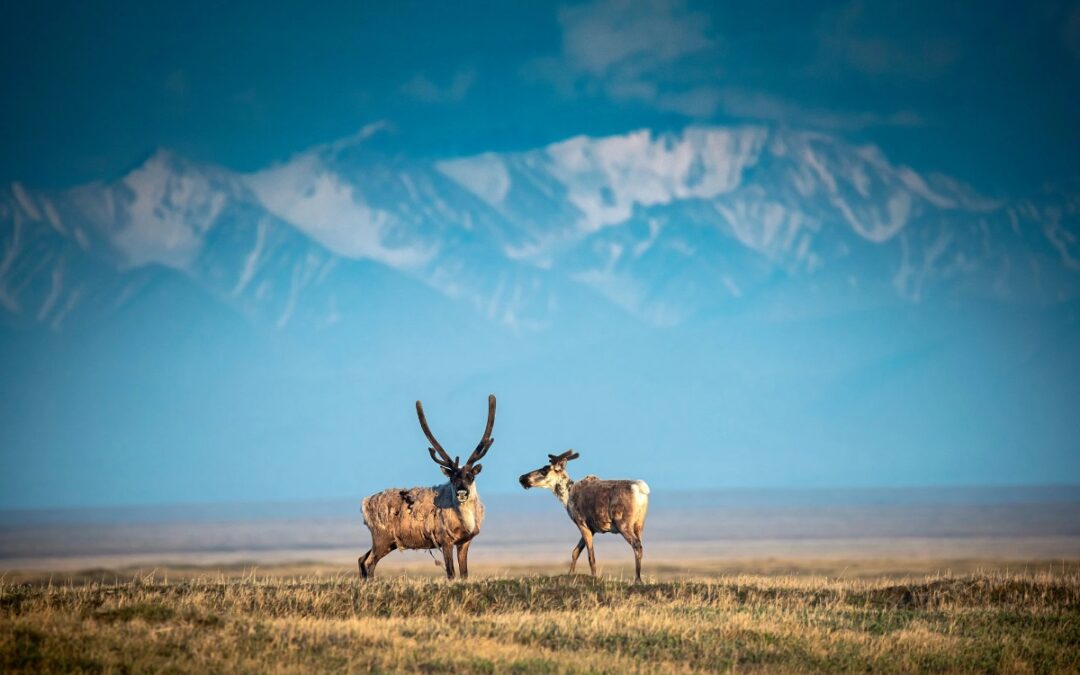The Trump administration today finalized its plan to open up part of the Arctic National Wildlife Refuge in Alaska to oil and gas development, a move that overturns six decades of protections for the largest remaining stretch of wilderness in the United States.
The decision sets the stage for what is expected to be a fierce legal battle over the fate of the refuge’s vast, remote coastal plain, which is believed to sit atop billions of barrels of oil but is also home to polar bears and migrating herds of caribou.
The Interior Department said on Monday that it had completed its required reviews and would begin preparations to auction off drilling leases.
“I do believe there could be a lease sale by the end of the year,” Interior Secretary David Bernhardt said.
Environmentalists, who have battled for decades to keep energy companies out of the refuge, say the Interior Department failed to adequately consider the effects that oil and gas development could have on climate change and wildlife.
They and other opponents, including some Alaska Native groups, are expected to file lawsuits to try to block lease sales.
“We will continue to fight this at every turn,” said Adam Kolton, executive director of the Alaska Wilderness League, in a statement. “Any oil company that would seek to drill in the Arctic Refuge will face enormous reputational, legal and financial risks.”
Though any oil production within the refuge would still be at least a decade in the future and would require more permits, companies that bought leases could begin the process of exploring for oil and gas.
Trump has long cast an increase in Arctic drilling as integral to his push to expand domestic fossil fuel production on federal lands and secure America’s “energy dominance.”
Republicans have prized the refuge as a lucrative source of oil and gas ever since the Reagan administration first recommended drilling in 1987, but efforts to open it up had long been stymied by Democratic lawmakers until 2017, when the G.O.P. used its control of both houses of Congress to pass a bill authorizing lease sales.
“ANWR is a big deal that Ronald Reagan couldn’t get done and nobody could get done,” Trump said in an interview with Fox & Friends today.
It remains unclear how much interest there will be from energy companies at a time when many countries are trying to wean themselves from fossil fuels and oil prices are crashing amid the coronavirus pandemic.
Nevertheless, by proceeding with the lease sales, the Trump administration has made the Arctic refuge a potential issue in the presidential campaign, and the region’s fate may ultimately hinge on the election’s outcome.
The Democratic nominee Joe Biden has called for permanent protection of the refuge.
However, even if he were to win the White House, it could prove difficult for his administration to overturn existing lease rights once they have been auctioned to energy companies.
Critics said drilling in the refuge could harm animal species that are found there and could also negatively affect the landscape itself.
“This plan will not only harm caribou, polar bears, and other wildlife, it is foolish in the face of rapidly advancing climate change,” said a statement from Center for Western Priorities executive director Jennifer Rokala.
“Oil companies will have to harden their infrastructure to withstand melting permafrost and rising seas, leading to an even greater impact. Essentially, Bernhardt is approving a plan to despoil America’s wildest landscape for oil that we will be using less of in coming decades, all for the benefit of his former and future clients,” she said, referring to Bernhardt’s former job as an oil lobbyist.
Animal species found in the refuge include grizzly bears, polar bears, gray wolves, caribou and arctic foxes.
Concerns have also been raised about the impacts of drilling on the indigenous Gwich’in people, who hunt caribou in the area and to whom ANWR land is sacred.
Democrats this year accused the administration of not being sufficiently thorough in its assessment finding that drilling activity wouldn’t harm polar bears.
The Interior Department rejected their assertions, calling them “erroneous.”
Financial institutions have recently expressed resistance to finance drilling at ANWR or in the Arctic at large, citing environmental impacts.
At least one group is threatening to sue the administration over the decision.
“The Trump administration’s so-called review process for their shameless sell-off of the Arctic Refuge has been a sham from the start. We’ll see them in court,” said a statement from Lena Moffitt, the Sierra Club’s senior director of its Our Wild America campaign.
